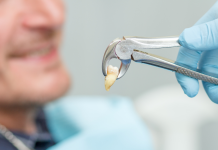
Indiana Vasectomy
An Indiana Vasectomy is a surgical procedure that is performed to sterilize a man by cutting and sealing the vas deferens, the tubes that carry sperm from the testicles to the urethra. It is a permanent form of birth control that is usually performed as an outpatient procedure, meaning that the patient is able to go home the same day.
Introduction:
In Indiana, vasectomies can be performed by a variety of healthcare providers, including urologists, family medicine doctors, and obstetrician-gynecologists. The procedure typically takes about 30 minutes to an hour to complete and is done under local anesthesia, which numbs the area where the surgery is performed.
Vasectomies are generally considered safe and effective, with a success rate of over 99%. However, like any surgery, there are some risks involved, including bleeding, infection, and pain. It is important to discuss the potential risks and benefits of the procedure with your healthcare provider before deciding whether a vasectomy is right for you.
In Indiana, the cost of a vasectomy can vary depending on the provider and the specific circumstances of the procedure. Many insurance plans cover the cost of a vasectomy, but it is always a good idea to check with your insurance provider to confirm what is covered.
What Is Indiana Vasectomy:
A vasectomy is a surgical procedure that is performed to sterilize a man by cutting and sealing the vas deferens, the tubes that carry sperm from the testicles to the urethra. It is a permanent form of birth control that is usually performed as an outpatient procedure, meaning that the patient is able to go home the same day.
In Indiana, vasectomies can be performed by a variety of healthcare providers, including urologists, family medicine doctors, and obstetrician-gynecologists. The procedure typically takes about 30 minutes to an hour to complete and is done under local anesthesia, which numbs the area where the surgery is performed.
Vasectomies are generally considered safe and effective, with a success rate of over 99%. However, like any surgery, there are some risks involved, including bleeding, infection, and pain. It is important to discuss the potential risks and benefits of the procedure with your healthcare provider before deciding whether a vasectomy is right for you.
In Indiana, the cost of a vasectomy can vary depending on the provider and the specific circumstances of the procedure. Many insurance plans cover the cost of a vasectomy, but it is always a good idea to check with your insurance provider to confirm what is covered.
Indiana Vasectomy Pros:
There are several potential benefits to getting a vasectomy in Indiana:
- Effectiveness: Vasectomies are considered one of the most effective forms of birth control, with a success rate of over 99%.
- Convenience: Vasectomies are a permanent form of birth control, so once the procedure is completed, you don’t have to worry about taking any further steps to prevent pregnancy.
- Ease of procedure: Vasectomies are usually performed as an outpatient procedure and take about 30 minutes to an hour to complete. The procedure is done under local anesthesia, so you will be awake but will not feel any pain during the surgery.
- Cost-effective: While the initial cost of a vasectomy may be higher than other forms of birth control, it is generally considered a cost-effective option in the long run because you won’t have to pay for ongoing birth control expenses.
- Low risk: Vasectomies are generally considered safe and have a low risk of complications.
It’s important to keep in mind that while vasectomies are effective at preventing pregnancy, they do not provide protection against sexually transmitted infections (STIs). It is still important to use condoms or other protective measures to reduce the risk of STIs.
Indiana Vasectomy Cons:
There are also some potential drawbacks to getting a vasectomy in Indiana:
- Permanent: Vasectomies are a permanent form of birth control, so it is important to be certain that you do not want to have any more children before getting the procedure.
- Risk of complications: Although vasectomies are generally considered safe, there is a small risk of complications, such as bleeding, infection, and pain.
- Recovery time: You may experience some discomfort and swelling after the procedure, and it is generally recommended to rest for a day or two after the surgery. It may take several weeks for the incisions to fully heal.
- Cost: While the cost of a vasectomy may be covered by insurance, it is still a financial burden for some people.
- Does not protect against STIs: Vasectomies do not provide protection against sexually transmitted infections (STIs), so it is still important to use condoms or other protective measures to reduce the risk of STIs.
It is important to carefully consider the potential pros and cons of a vasectomy before deciding whether the procedure is right for you. It is a good idea to discuss your options with a healthcare provider to determine the best course of action for your specific circumstances.

If you want to get amazing benefits by using this link
Conclusion:
In conclusion, a vasectomy is a surgical procedure that is performed to sterilize a man by cutting and sealing the vas deferens, the tubes that carry sperm from the testicles to the urethra. It is a permanent form of birth control that is usually performed as an outpatient procedure in Indiana and can be done by a variety of healthcare providers, including urologists, family medicine doctors, and obstetrician-gynecologists. Vasectomies are generally considered safe and effective, with a success rate of over 99%, and can be a convenient and cost-effective option for those who are certain they do not want to have any more children. However, it is important to carefully consider the potential pros and cons of the procedure and discuss your options with a healthcare provider before deciding whether a vasectomy is right for you. It is also important to remember that vasectomies do not provide protection against sexually transmitted infections (STIs), so it is still important to use condoms or other protective measures to reduce the risk of STIs.










